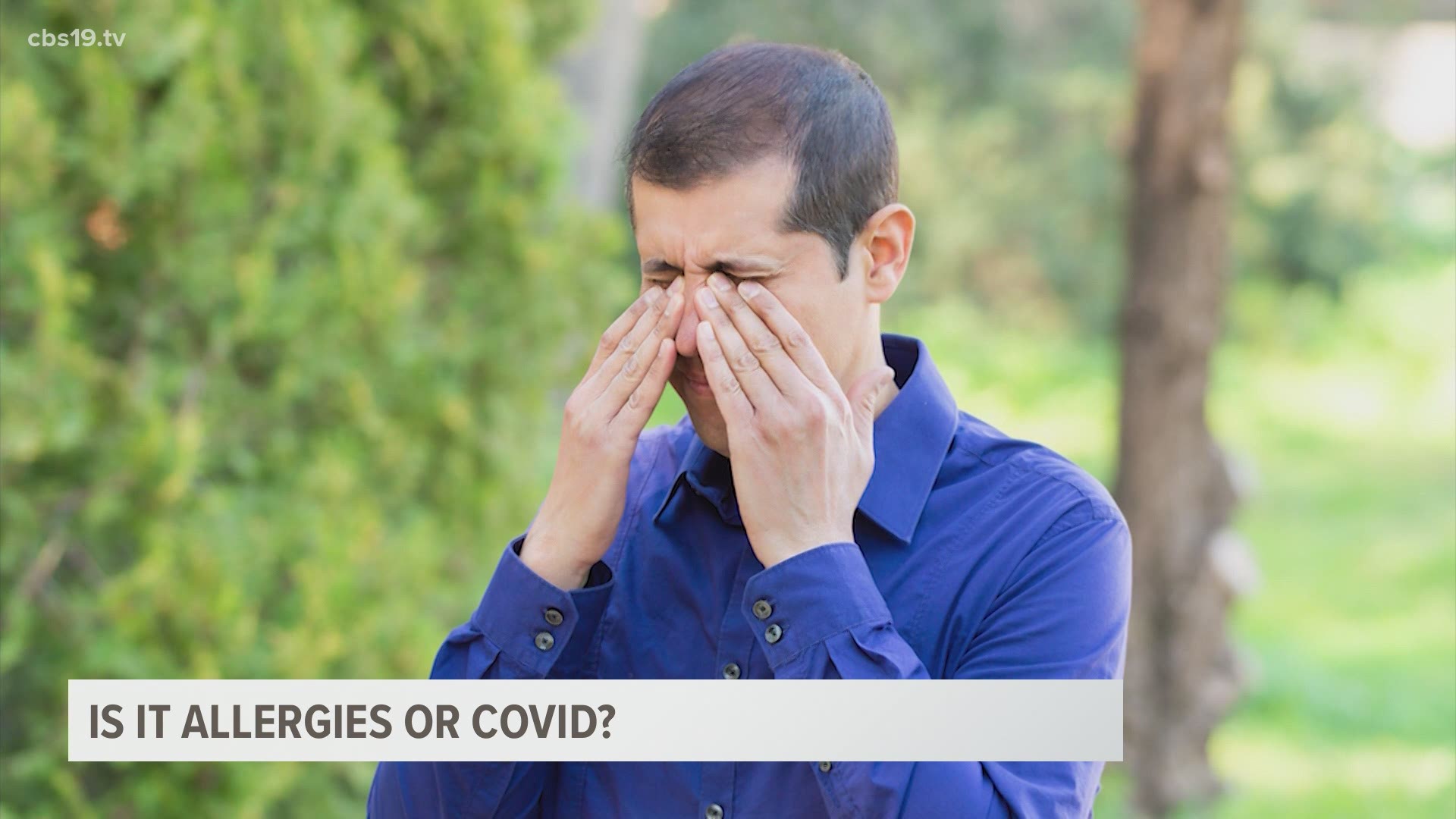TYLER, Texas — We're only about two weeks out from spring, but with that really nice weather comes allergies for a lot of us in East Texas.
And some reason, it seems like get hit harder and for longer in the Piney Woods than in other parts of the state.
Normally, we just chalk up feeling crummy to allergy season. But, not this year not with COVID-19 still around.
Dr. Brad Robertson sees it all at Tyler Complete Care — a free standing emergency room in East Texas.
He says they've also seen their share of COVID-19 cases and tests for the disease.
"We're open 24-hours-a-day prepared to see whatever comes in," Dr. Robertson said. "But COVID definitely was the biggest spike in our volumes. Certainly December, January, for sure."
But how do you know it's COVID when the symptoms are so similar — not just to allergies, but the flu and other viruses circulating in the community.
"One of the problems with COVID, it can present in so many different ways," said Dr. Robertson. "Most people historically, if they have the flu, they kind of know they have the flu when they get here, high fever and aching and the respiratory symptoms that COVID can present like that. It can also present with gastrointestinal symptoms, or just loss of taste and smell or just a little congestion. And so it can be kind of hard to hard to know sometimes if it is allergies, or an upper respiratory infection or, or COVID."
According to the Centers for Disease Control and Prevention (CDC), some of the symptoms overlap — a cough, shortness of breath, fatigue, headache, sore throat and congestion or a runny nose.
But some symptoms don't overlap.
"With allergies, you shouldn't shouldn't run a fever, you may feel a little bit lousy just from the allergies themselves and your body's immune response," Dr. Robertson said. Usually, with COVID, you have a little more flu like symptoms and body aches, fever, again, not 100% by any means, but I think lost taste and smell has been a high... is that a symptom that's correlated highly with COVID. As opposed to allergies usually is more just runny nose, upper respiratory, puffy eyes, itching eyes."
Stomach issues are also more common with COVID-19.
So, when should you go see the doctor to find out if you're suffering from allergies or possibly COVID-19?
"I think that's always the safest thing is to know because, you know, most people are going to do fine with COVID and get over it and recover," Dr. Robertson said. "The problem is if you have it, are you spreading it to other people that are more vulnerable?"
And if it does turn out to be COVID-19, Dr. Robertson says you need to monitor your symptoms.
"If you're getting short of breath, feeling, feeling like you're not getting enough air, especially at rest, but even with exertion, if you have moving around feel like I'm not breathing," Dr. Robertson said. "Right? That's an absolute sign you need to be evaluated."
If it turns out to be allergies, Dr. Robertson suggests starting with over the counter antihistamines and inhaled nasal steroids. If that doesn't work, there are also medications that can be prescribed.

